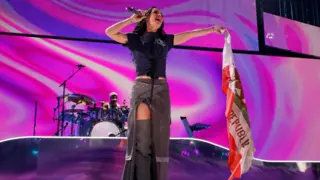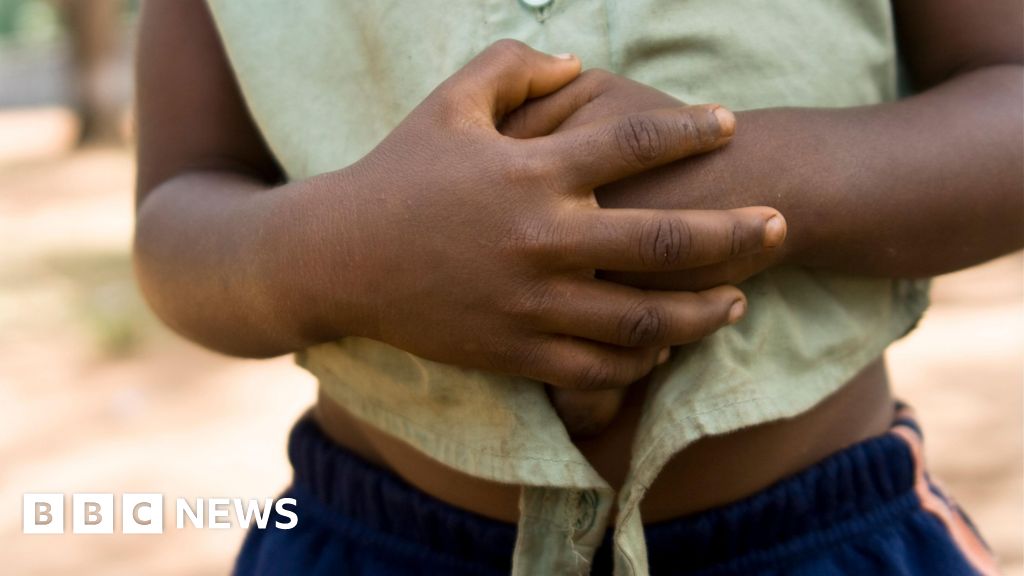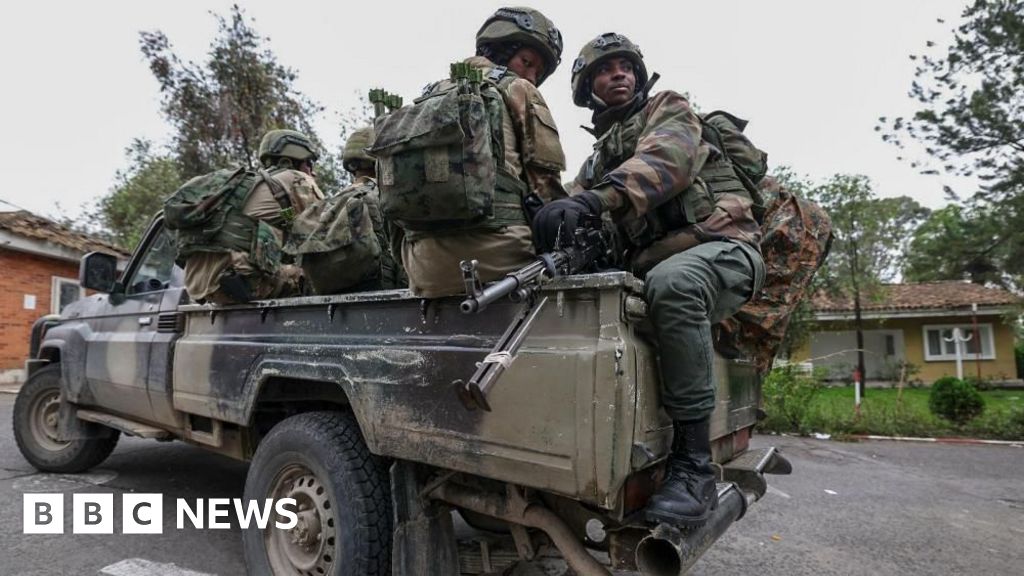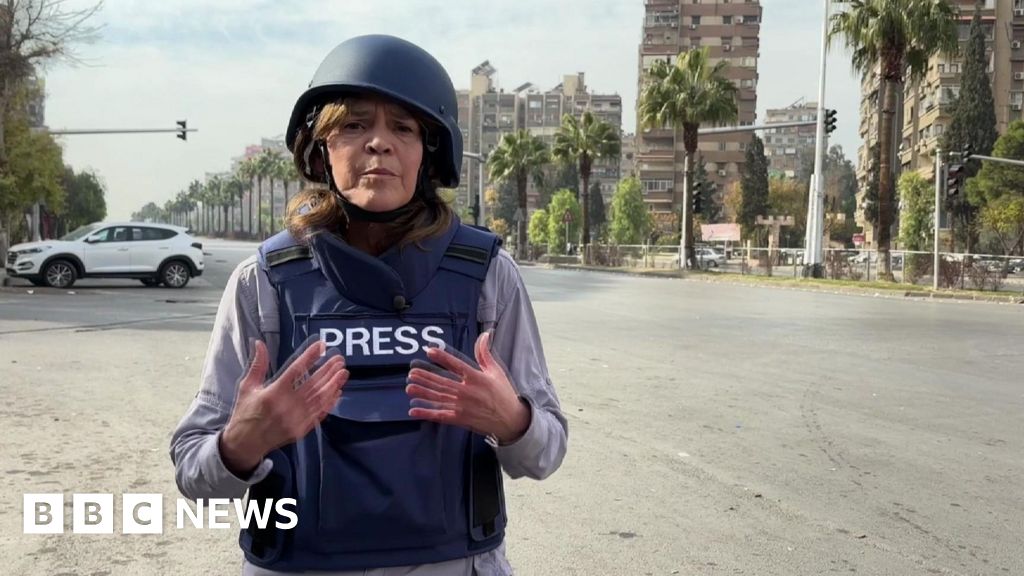BBC News
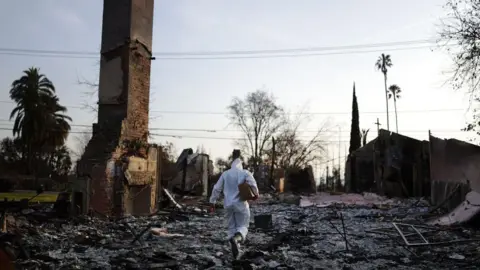 Getty Images
Getty ImagesThe week leading up to the Grammy Awards is typically a star-studded seven days.
It is filled with exclusive parties that draw some of music’s top talents from across the globe – producers, singers, agents and musicians – all to the epicentre of the entertainment industry in Los Angeles.
But nearly all of that is non-existent this year. Even the hallmark rowdy after-parties have been cancelled.
There were questions over whether the Grammys ceremony, the “Oscars for Music,” would even go on as planned on Sunday after Los Angeles saw its most devastating fire disaster ever recorded – blazes that were only fully doused on Friday after burning for 24 days.
Twenty-nine people have died and more than 16,000 homes and businesses have been destroyed – with whole neighbourhoods now ash. Many artists and industry professionals are among those who lost homes, studios and equipment.
In the muted lead-up to the show, efforts usually put toward parties have gone instead toward fundraising efforts. Showrunners say the ceremony itself will also look different.
To cancel the show or not?
The Recording Academy, which runs the show, said the show is needed more than ever. Trustees say the evening will double as a charitable event to raise money and honour both the victims and the emergency responders who risked their lives.
But it will look different than years past.
Showrunners are looking to strike the right tone honouring the victims of the fire and displaying a defiant Los Angeles that will persevere. But there is concern the optics of rich celebrities dolled up with smiles on a red carpet could come off as tone deaf.
Recording Academy CEO Harvey Mason Jr. said that the show include a reimagined format, scaled-back red carpet and a more reflective tone.
He highlighted the economic impact, noting that thousands rely on Grammy-related work, particularly in the service industry. He framed the event as a symbol of resilience, arguing that cancelling would not benefit the city or music industry.
“Cancelling, pushing, moving does not accomplish what us standing together” does, Mr Mason argued in a webcast. The show will be “unifying and coming together, honouring music, but also using the power of music to heal, rebuild and provide services to people who need it”.
“I think this might be one of the most important Grammy weeks we’ve ever had.”
Mr Mason told the New York Times that they consulted a range of public officials about whether they should hold the event – including the city’s mayor and California Governor Gavin Newsom – and whether it would hinder fire response efforts.
“They strongly suggested that we continue forward with hosting the event,” he told the outlet. “Everyone said there’s nothing good that comes from postponing.”
But there are still worries that the night will be a bad look for the music industry.
“I actually don’t think that the Grammys should be happening,” Elyn Kazarian, a creative director in the music industry, told the BBC.
“It’s just very weird to me that there are going to be celebrities on a red carpet wearing expensive clothes while people in other parts of the city are suffering and whose livelihoods have been destroyed.”
Will the show look different?
Showrunners say the fires will be a theme that runs throughout the ceremony and the city of Los Angeles will be centre stage.
Ben Winston, one of the three executive producers of the show, told the New York Times that the awards will “make LA a character in the night of Grammys” and the show would pay tribute to first responders.
A big aim of the show will be fundraising for fire relief efforts.
Just days before the show, another big music event in the city raised millions for rebuilding efforts. The FireAid concert, hosted in two LA arenas with more than two dozen musical acts, raised more than $60 million in ticket sales alone.
The Grammys will run for a staggering eight hours and hand out 94 awards, recognising everything from best pop album to best choral performance.
Beyoncé and Taylor Swift will both be in attendance as they square off in the album of the year category for the first time since 2010 – which Swift won that year.
There will also be performances from Charli XCX, Sabrina Carpenter, Benson Boone, Shakira, Stevie Wonder, Teddy Swims and Raye – and an in memoriam tribute to Thriller producer Quincy Jones.
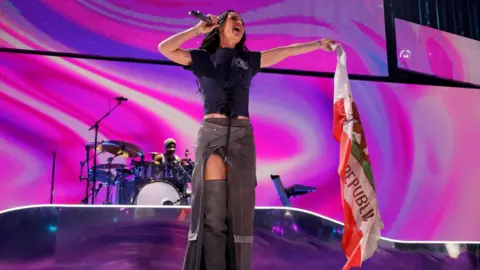 Getty Images
Getty ImagesPrevious tragedies have impacted the Grammys
This is not the first time a major disruption has impacted the music industry’s biggest night.
In 2021, the show was postponed due to Covid-19 and was significantly altered to accommodate safety protocols. It featured a socially distanced format, with no live audience and pre-recorded performances in an intimate outdoor setting rather than the usual large-scale arena production.
Artists had to adjust to a new way of promoting their music, relying on digital platforms rather than in-person Grammy week events, which were either cancelled or moved online.
“I wouldn’t necessarily compare the COVID pandemic to what’s happening here,” senior music writer for Variety, Steven J Horowitz, told the BBC. “COVID lasted for so long and the effects were devastating for years. People had to cancel major releases, and everything shifted to a digital space.”
He said the fires are different.
“The industry has reacted in real time. It’s not as widespread as a worldwide pandemic, so people are a little more flexible on how to properly react and help those affected,” he said.
How the industry has been impacted
Artist Manager Dani Chavez told the BBC that the fires have affected many people working in LA’s music industry.
“I know multiple musicians who lost their gear”, Chavez said. “I know stylists who work in music who lost their houses, who had costumes and whatnot. I know musicians who are born and raised in LA who lost their house.”
There is also a ripple effect in the industry on those not personally impacted by the fires.
The week of events before the show helps new musicians and allows them to break out in a crowded market – getting time with top executives and those at major record labels.
“Visibility is very important for artists,” Mr Horowitz told the BBC.
“Say you’re a Best New Artist nominee who is relatively unknown to the public – being on these platforms and at these parties is a really big look if you’re trying to get your music out in front of the industry. It really does help.”
One of the most sought-after parties is Spotify’s event honouring the nominees for Best New Artist of the year. It is half party, half concert, with previous nominees showcasing their new music, and celebrities from all parts of the entertainment industry there to celebrate.
Following the fires, Spotify chose to cancel this year’s event.
“We’ve decided that the most impactful approach is cancelling all our Grammy Week events, including our annual Best New Artist party, and redirecting funds to support efforts to reach local fans and charitable organizations,” Spotify’s Global Head of Music Partnerships and Audience Joe Hadley wrote in an announcement.
The music industry and the Grammys are deeply rooted in Los Angeles, and though the city is going through a devastating period, it has reinforced a sense of community, especially in the music industry.
“Even if people lost everything, they still have hope. And I think that feeds into what we’re going to see in the music industry in the future,” Mr Horowitz said. “People aren’t going to flee Los Angeles because of this one thing. It’s not going to stop L.A. from being one of the main hubs for music in the world.”
